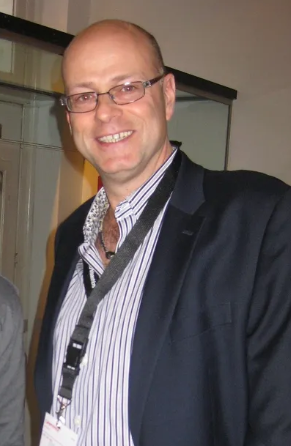What Makes a PERFECT Doctor Patient Conversation?
The Art of Effective Doctor-Patient Communication: Fostering Shared Decision-Making
Effective communication is the cornerstone of quality healthcare. It builds trust, ensures accurate diagnoses, and ultimately leads to better health outcomes and increased patient satisfaction. This page explores the key elements that contribute to a perfect doctor-patient conversation, emphasizing the crucial role of shared decision-making in modern medicine.
What Makes a Perfect Doctor-Patient Conversation?
Drawing insights from experts like Lawrence Sherman and organizations like Meducate Global, a perfect doctor-patient conversation is characterized by several vital components:
 Active Listening: Healthcare professionals must genuinely listen to their patients, understanding their concerns, fears, and expectations without interruption. This goes beyond simply hearing words; it involves paying attention to non-verbal cues and asking clarifying questions.
Active Listening: Healthcare professionals must genuinely listen to their patients, understanding their concerns, fears, and expectations without interruption. This goes beyond simply hearing words; it involves paying attention to non-verbal cues and asking clarifying questions.- Empathy in Healthcare: Demonstrating empathy means understanding and sharing the feelings of another. For doctors, this translates to acknowledging the patient’s perspective, validating their emotions, and showing compassion. It fosters a supportive environment where patients feel heard and valued.
- Clear Explanations: Medical information can be complex. Doctors need to explain diagnoses, treatment options, and potential outcomes in clear, understandable language, avoiding jargon. This empowers patients to grasp their health situation fully.
- Asking Medical Questions Effectively: The ability to ask pertinent and open-ended questions is vital for gathering comprehensive information. It allows patients to elaborate on their symptoms and concerns, leading to a more accurate understanding of their condition.
These elements collectively enhance clinical communication skills, transforming routine doctor appointments into meaningful interactions that prioritize patient-centered care.


The Power of Shared Decision-Making
Shared decision-making (SDM) is a collaborative process where patients and clinicians work together to make healthcare decisions. It moves beyond a paternalistic model of care, recognizing the patient’s right to be informed and involved in choices that affect their health. SDM integrates the best available scientific evidence with the patient’s goals, preferences, and values.
 Why is Shared Decision-Making Important?
Why is Shared Decision-Making Important?
- Empowerment: SDM empowers patients to take an active role in their healthcare journey. When patients are involved in decisions, they are more likely to adhere to treatment plans and feel a sense of ownership over their health.
- Improved Outcomes: Research indicates that SDM can lead to better health outcomes, as decisions are tailored to the individual’s unique circumstances and preferences.
- Increased Satisfaction: Patients who participate in SDM report higher satisfaction with their care and their doctors. This strengthens the doctor-patient relationship and builds trust.
- Ethical Practice: SDM aligns with ethical principles of respect for autonomy, ensuring that patients’ values and preferences are central to medical choices.
- Reduced Decisional Conflict: By openly discussing options, benefits, risks, and uncertainties, SDM helps reduce anxiety and decisional conflict for patients.
Implementing Shared Decision-Making
For effective shared decision-making, healthcare professionals can:
- Provide balanced information: Present all relevant treatment or diagnostic options, including the option of doing nothing, along with their potential benefits and harms.
- Explore patient preferences: Understand what matters most to the patient – their lifestyle, values, fears, and priorities.
- Use decision aids: Tools like patient decision aids can help patients understand complex medical information and clarify their values.
- Check for understanding: Ensure the patient has fully grasped the information and feels comfortable asking questions.
Conclusion
Cultivating strong communication skills for doctors, including active listening, empathy, and clear explanations, is fundamental to effective communication in healthcare. When combined with a robust approach to shared decision-making, these skills create a healthcare environment that is truly patient-centered, leading to better doctor-patient interaction, stronger doctor-patient relationships, and ultimately, a healthier society.
Meducate Global and Lawrence Sherman’s insights underscore the continuous need for medical communication training to achieve these ideals.
Listen on Podcast
Did you like your experience?
Please leave us a Testimonial HERE if you have a Google account.
Your word helps get our word out to more people.
Thank you in advance!!



